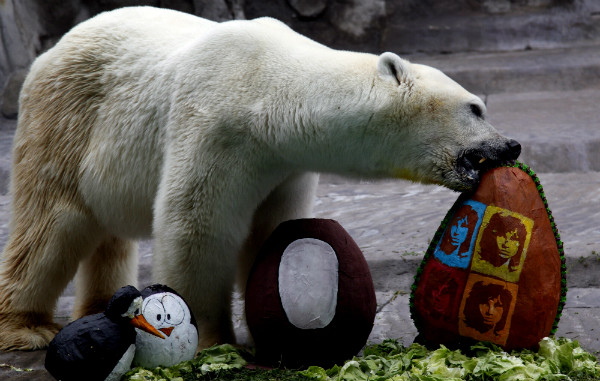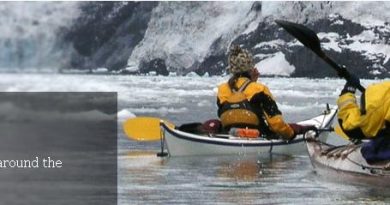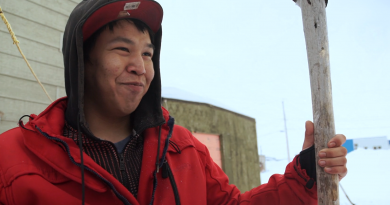Argentina’s last polar bear dies in a heatwave
 Call it the ultimate irony, but there is nothing funny about a polar bear dying of heat exhaustion.
Call it the ultimate irony, but there is nothing funny about a polar bear dying of heat exhaustion.
Yet that’s exactly what happened to Winner on Christmas morning. Winner was a 14-year-old polar bear trapped in the Buenos Aires Zoo, almost 11,000 km (6,800 miles) south of its natural habitat.
“The cause of death following a necropsy was established as hyperthermia, which is influenced by the environment and by the bear’s own temperament,” said a statement by the zoo.
“Unfortunately, as a consequence of the unusually high temperatures, along with fireworks from December 24th and the bear’s nervous temperament caused the bear’s death.”
The Buenos Aires Zoo claims its enclosure along with a 145,000-litre pool met international standards for keeping polar bears.
If this is true, who the hell came up with these ‘international’ standards? Who in his or her right mind can argue that Buenos Aires where summer temperatures reach mid-40 C is a suitable place for an animal that is designed by nature to collect and retain heat in the frigid Arctic climes?
Winner’s sad fate reminded me of another polar bear I used to see growing up in my native Armenia.
We used to visit the zoo in Yerevan, the capital of then Armenian Soviet Socialist Republic, quite often. One of the biggest attractions along with Vova, the Asian elephant, was this poor fellow. Polar bears in Armenian are called “white bears.” But there was very little white left in this polar bear. His fur had taken on a greenish hue.
While winter temperatures in Yerevan can dip below -20 C, summers are scorching hot.
My most vivid memory of the Yerevan Zoo polar bear was him swaying back and forth, trying desperately to cool down as the summer heat smothered the city. Not even the swimming pool filled with cold mountain water was cool enough for that poor bear as delighted children watched him suffocate in his green coat.



